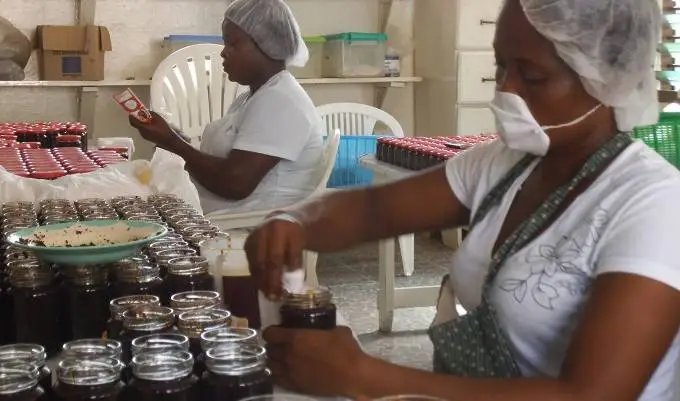In a revelatory finding, Africa’s Pulse Report released in April 2024 by the World Bank has shed light on a transformative initiative empowering small businesses in Ghana.
The report underlined the significance of an apprenticeship placement program in driving growth and reducing structural inequalities within the country’s economy.
According to the report, structural inequalities stemming from market imperfections and institutional distortions have long hindered the productivity and earnings of small-scale enterprises across Sub-Saharan Africa.
However, the excerpt from the Africa’s Pulse Report highlighted a beacon of hope emanating from Ghana’s entrepreneurial landscape.
“Small firms in Ghana that participated in an apprenticeship placement program grew their revenues and profits because the program reduced the firms’ cost of screening workers,” the report states, affirming the tangible benefits accrued by businesses embracing innovative solutions to address longstanding challenges.
By mitigating the costs associated with screening workers, participating small firms have unlocked new avenues for growth and competitiveness in the market.

Small firms’ adoption of apprenticeship programs underscores a proactive approach to tackling entrenched barriers to growth. By prioritizing skill development and workforce empowerment, the initiative not only enhances the operational efficiency of businesses but also fosters a conducive environment for job creation and entrepreneurship.
Furthermore, the Africa’s Pulse Report emphasized the pivotal role of public-private partnerships in driving sustainable development outcomes.
Through collaborative efforts between the government and the private sector, initiatives like the apprenticeship program can catalyze transformative change and pave the way for a more equitable distribution of economic opportunities.
Challenges Faced By Ghanaian Workers
However, the report also shed light on the persistent challenges faced by workers in Ghana’s labor market.
“Costly job search, high transport costs, and lack of information together with costly screening of potential workers also create frictions in the labor market, which prevent workers from accessing productive opportunities.”
Africa’s Pulse Report, April 2024
The implications of these challenges are profound, particularly in a country where labor force participation rates are high. Labor market frictions, as highlighted in the report, play a decisive role in determining where people work, the type of contracts they secure, and the firms or farms they are employed by.
For instance, workers residing further from city centers often have fewer favorable employment opportunities compared to their counterparts in city centers.

Furthermore, the report highlighted broader systemic challenges that contribute to the economic disparities and structural inequalities faced by small firms and workers in Ghana. The report said that, at the macro level, factors such as “low legal certainty, weak state capacity, and lack of competition” profoundly affect the functioning of markets, worsening inequality irrespective of individual effort or talent.
“Barriers to competition in product markets tend to be higher in African countries, due to a high degree of state involvement in markets, legal and administrative barriers to entrepreneurship, as well as barriers to trade and investment.”
Africa’s Pulse Report, April 2024
In such environments, powerful firms can easily impose market power, allowing them to set prices above competitive levels and extract larger profits.
This not only disadvantages workers and consumers but also stifles innovation and inhibits the growth of small firms, ultimately limiting job opportunities and impeding the overall growth process.
These challenges call for comprehensive reforms to enhance market competition and reduce barriers to entrepreneurship in Ghana.
By addressing systemic issues such as legal uncertainty and administrative barriers, policymakers can create an enabling environment for small firms to thrive, thereby fostering inclusive economic growth and reducing inequality.
Also, by heeding the insights provided by the Africa’s Pulse Report and implementing targeted reforms, Ghana can unlock the full potential of its economy and pave the way for a more prosperous future for all its citizens.
READ ALSO: Morality, Integrity Rank Low In Ghana’s Elections



















